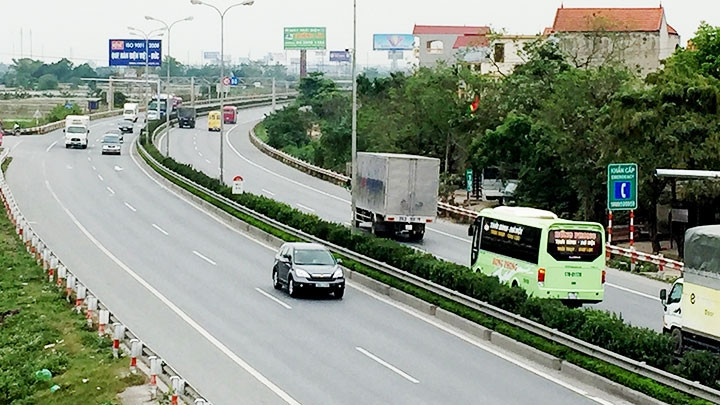The Transport Ministry held an online announcement ceremony on September 15 to declare the national road network plan for the 2021-2030 period, with a vision to 2050, which was approved by the Prime Minister on September 1.
Deputy Minister of Transport Le Dinh Tho said that the planning was made by the Ministry of Transport based on consultations with 63 localities, 16 ministries and ministerial-level agencies, and organisations, as well as the opinions of the appraisal council and the Government.
Under the planning, a highway network will be established to connect economic and political centres, key economic regions, seaports, airports, and international border gates.
Road network is also defined as a flexible and effective means of transport for short and medium distances, less than 300km, while it helps gather and release goods and passengers for other means of transport.
Belt highways in Hanoi and Ho Chi Minh City will also be adjusted in length and scale with some elevated sections based on the needs of urban development.
The road network is also expected to transport 62% of total freight transport and 90% of passenger transport by 2030.
Deputy Director General of the Directorate for Roads of Vietnam, Nguyen Xuan Cuong said that the planning proposed the selection of a list of priority projects that will be driving force for regional or inter-regional development including the North-South Expressway in the east; a number of expressways in the South, Central and Central Highlands regions; and belt roads in Hanoi and Ho Chi Minh City.
















